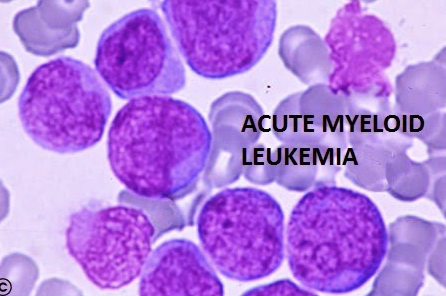New Drug Combo To Fight Acute Myeloid Leukemia.
Source: Thailand Medical News Nov 03, 2019 6 years, 3 months, 2 weeks, 3 days, 20 hours, 27 minutes ago
A new study led by Rice University bioscientist Dr Natashat Kirienko and postdoctoral researcher Svetlana Panina found that
mitocans, anti-cancer drugs that target mitochondria, are particularly adept at killing
leukemia cells, especially when combined with a glycolytic inhibitor, while leaving healthy blood cells in the same sample largely unaffected.

The published findings, an open access paper, in a collaboration with the University of Texas MD Anderson Cancer Center, appears in the Nature journal Cell death and Disease. The research could lead to new ways to personalize treatment for patients with l
eukemia.
Dr Kirienko in an interview with
Thailand Medical News commented, “We started with the idea of finding an underlying connection between types of cancer and their sensitivity to specific kinds of chemotherapeutics, mitochondria-targeting drugs. Our bioinformatic analysis, which included sixty cell lines from nine different cancer types, showed that
leukemia cells are particularly sensitive to mitochondrial damage.”
The results of their experimental study showed that 86% of targeted
leukemia cells were killed, compared to only 30% of healthy blood cells.
Dr Kirienko added, “A number of drugs currently used in the clinic have some cancer preference, but here we’re talking about a five-fold difference in survival,”
The medical researchers also showed a significant correlation between how efficiently mitochondria can turn energy from incoming oxygen into useful adenosine triphosphate (ATP) and how resistant they are to treatment.
“The more efficient they are, the more resistant they will be to mitochondria-targeting drugs If this holds true, doctors can perform a relatively simple test of this specific parameter of mitochondrial health from a patient’s sample and predict whether the treatment would be effective.”added Dr Kirienko.
Dr Panina said computational models led them to think the glycolysis pathway could be enlisted to help
mitocans. “Glycolysis also provides ATP, so targeting that will decrease energy as well as block the precursor for energy production in mitochondria, which
mitocans will exacerbate further It led us to believe this combination would have a synergistic effect.
Cancer cells are usually more metabolically active than normal cells, so we predicted that they be might be more sensitive to this combined strike, and they are,” Dr Panina said.
Dr Kirienko said a presentation of the research she and Panina gave at MD Anderson’s recent Metabolism in Cancer Symposium drew a large response. “People were very interested, and they immediately
started asking, ‘Did you test my favorite drug or combination?’ and ‘Are you going to test it in a wider panel of cancers?’”
The answers to those questions are well underway, Dr Panina said. “We’re currently doing high-throughput screening of these potential synergistic drug combinations against
leukemia cells,” she said. “We’ve gone through 36 combinations so far, building landscapes for each one.”
“We found some that are more effective than what’s reported in this paper. But we’ve also found some that are antagonistic, two drugs that negate each other’s effects so it’s also important to know what therapeutic cocktails should not go together.” Dr Kirienko added
Postdoctoral fellow Natalia Baran; Marina Konopleva, a physician-scientist and professor in the Department of
Leukemia at MD Anderson; and Rice graduate student Fabio Brasil da Costa. Kirienko is an assistant professor of biosciences are co-authors of the study.
Reference: Panina, et al. (2019) A mechanism for increased sensitivity of acute myeloid leukemia to mitotoxic drugs. Cell Death & Disease. DOI: https://doi.org/10.1038/s41419-019-1851-3 